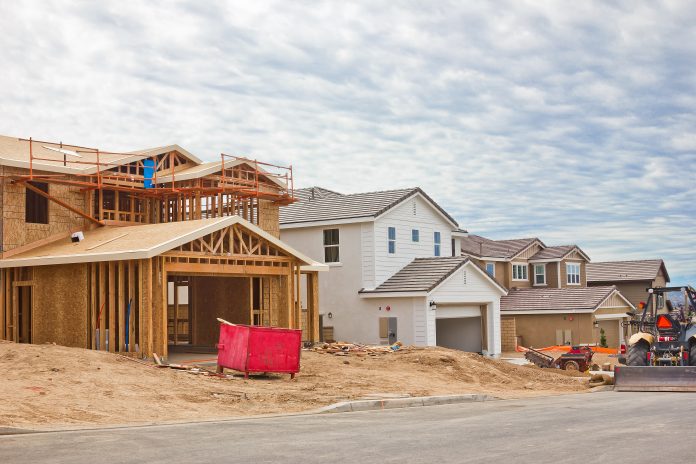By Ladislav Kovac
Robins Appleby
Every month that passes seems to bring new legislative changes with major impacts on the building industry. While municipal, provincial and federal governments are each taking steps to address housing affordability, many of these steps create additional problems for developers, potentially increasing costs and not creating solutions to the housing affordability problem.
Lobbying efforts have now made some headway with needed changes having been made to the Prohibition on the Purchase of Residential Property by Non-Canadians Act (PPRP Act), as well as the federal Underused Housing Tax Act (UHT Act). We briefly discuss those changes below, as well as further concerns for other vacant home legislation that still impose costs on developers.
Foreign prohibition amendments
In our Feb. 9, 2023 article, we summarized the PPRP Act and commented that it created problems by potentially capturing developers and REITs within its prohibition. BILD, the CHBA, together with a number of lawyers and developers had lobbied against this over-capture.
As of March 27, 2023, the PPRP Act has been amended and substantially addressed these concerns. Most importantly, a new exemption was created where property is purchased for the purposes of development. This will alleviate concerns for most developers. However, we note that the PPRP Act did not define what type of development is exempted. As such, plans to tear down and rebuild housing without creating additional dwelling units or to make only minor renovations which add additional dwelling units may not fall within this exemption.
Otherwise, several other significant problems with the PPRP Act were amended:
- The PPRP Act no longer applies to vacant, commercial or industrial lands that are zoned for residential or mixed-use.
- Non-corporate public entities (such as REITs, trusts or limited partnerships) traded on a Canadian stock exchange are now exempt.
- The indirect or direct foreign ownership threshold for a corporation or entity has been increased from three to 10 per cent.
The PPRP Act amendments also made qualifying under the work permit exemption easier, requiring only that a purchaser’s work permit have at least 183 days remaining on its validity and that the purchaser had not acquired any other residential property.
Vacant home taxes
A number of vacant home taxes have been implemented both at the federal and municipal levels. Each set of legislation has its own nuances and we will not summarize each in this article, but rather identify common ways in which this legislation has the potential to create costs for developers. In addition to the federal UHT Act, at this time in Ontario, both Toronto and Ottawa, have implemented their own vacant home tax by-laws. Hamilton is in the process of implementing their own by-law which is set to take effect in 2024, Halton Region is seeking council approval for its own vacant home framework and other municipalities may soon follow suit.
Generally, each form of legislation is the same, implementing a one-per-cent tax on the assessed value of a dwelling if it is left vacant. The key impacts we discuss below are impacts on:
- Administration and compliance costs
- Impact on inventory units
- Impact on pre-demolition units
Administrative costs
Even where the vacant taxes do not apply, vacant home legislation as a whole tends to require declarations to be filed by property owners confirming the status of the dwelling. Failure to file is often punitive, leading to the imposition of the tax and potentially further penalties. Developers who may at one time own a significant number of units will need to have staff file individual declarations for the federal UHT Act and any applicable municipal declarations.
In some cases the imposition of this cost is counter-intuitive. For instance, although the UHT Act exempts newly built housing units, developers are nonetheless required to file returns for any units that are substantially completed. Failing to file a return risks an assessment of the tax and interest by the minister, and those assessments are deemed valid until vacated by objection or appeal.
The CHBA has advocated for an exemption from these filing requirements for developers. While the CRA continues to require that filings be made, they have agreed to reduce the information required for newly built housing units. In an interpretation letter delivered by the CRA to the CHBA, the CRA indicated the following:
- A newly built housing unit becomes a residential property for UHT Act purposes when construction is substantially completed (generally 90 per cent or more) so that an individual could reasonably inhabit the property
- Where the property is exempt, the values to be inserted in boxes 280 and 285 (assessed value and sale price) can be zero, so long as the filing is made by Dec. 31 of the following calendar year.
While these changes make it much easier to file under the federal UHT Act, it does not eliminate the requirement entirely. In addition to the administrative burden to file, vacant home legislation and by-laws seem to be growing exponentially. Knowing whether a particular municipality has imposed a vacant homes by-law and the different requirements in each municipality will create additional legal costs.
Inventory units
Unlike the UHT Act, the current vacant home taxes in Ottawa and Toronto do not exempt newly built units (unless those homes were being built for at least 184 days of the year). As such, developers who leave inventory units vacant while they are being sold are potentially subject to the UHT Act. Depending on the value of the units and how long the units take to sell, these costs can be significant.
Pre-demolition units
Similarly, developers that are assembling one or more existing residential sites for redevelopment may have the tax imposed if the properties are left vacant during the pre-development stage. Typically, a developer in this situation will allow the existing occupants to remain in possession until closer to demolition and so be able to avoid much of the tax, but even then properties are often left vacant for a lengthy period of time before they are finally demolished. Once the properties are left vacant, developers will need to make payments for any applicable vacant home taxes for such units. This is particularly onerous in Toronto where a developer may be forced to leave the homes vacant in order to avoid Toronto’s rental replacement requirements.
Summary
Much of the new legislation that is currently being implemented to create affordable housing fails to consider the critical role that developers and builders play as the suppliers of housing. While recent amendments and CRA policy guidance to some of this legislation have corrected initial oversights, each new regulation and restriction only adds to the daunting regulatory landscape required to build. Ultimately new regulations and restrictions create additional challenges even if they have attempted to consider a builder’s interests. Builders should be cautious of these increasing requirements and how it might impact their business.

Ladislav Kovac is Partner at Robins Appleby LLP, Toronto. robinsappleby.com











